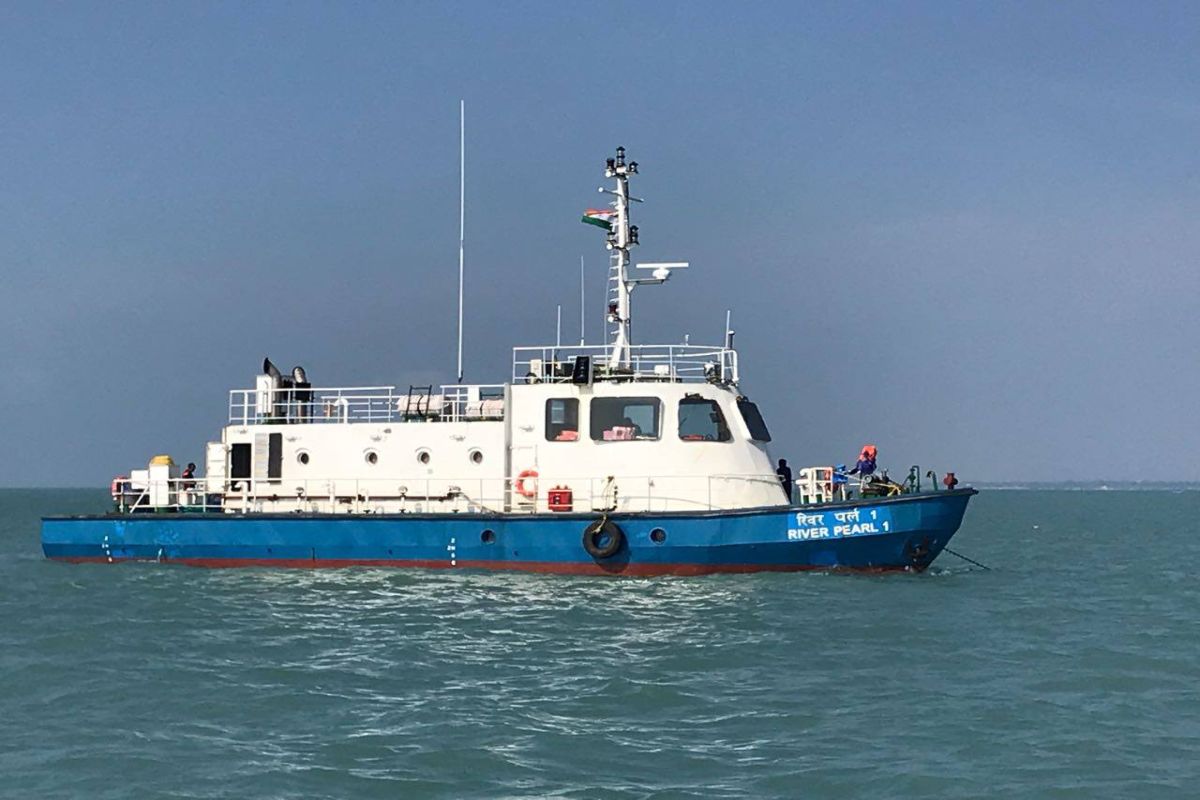State building Muriganga bridge without help from Centre: Mamata
The Centre has not given a single paisa to hold Gangasagar mela scheduled to be held from 8-17 January, chief minister Mamata Banerjee said today.
In 2017 a massive fire that broke out from a Kolkata port warehouse near the Armenian Ghat, caused several explosions with firemen having to battle for hours to douse the flames while tall columns of black smoke engulfed the Howrah Bridge.

(File Image: Facebook/@ kolkataport)
The massive explosion from stored ammonium nitrate in Beirut port, which claimed several lives and led to the collapse of the government, has led Indian ports to revisit the International Maritime Dangerous Goods (IMDG) code.
The Kolkata Port, which in the past has witnessed fire incidents in its warehouses due to explosive materials, has issued a strict warning advisory to its stakeholders against the storage of cargo in port’s warehouses.
Advertisement
Just ahead of the 75 anniversary of the Hiroshima Nagasaki bombings, a massive explosion of 3.3 magnitudes on the Richter Scale, rocked the capital of Lebanon in its port area and snuffed out hundreds of lives while around 5000 persons were grievously injured.
Advertisement
The explosion left mangled dead bodies trapped under mountains of debris. All this wasn’t caused by an atom bomb but by a chemical widely used in fertilisers-‘Ammonium Nitrate.’
The impacts of the explosion had a wide impact with ports considering a revisit to their protocols of storing “hazardous cargo” in the warehouses which are often leased out.
In 2017 a massive fire that broke out from a Kolkata port warehouse near the Armenian Ghat, caused several explosions with firemen having to battle for hours to douse the flames while tall columns of black smoke engulfed the Howrah Bridge.
Former security advisor of the Kolkata Port, Goutam Chakraborty, told The Statesman, “Not all cargo can be landed at a port. The International Maritime Dangerous Goods (IMDG) code lays out a guideline for categorisation of goods as per their nature.
The Category- I deal with explosive substances. It instructs how a certain hazardous cargo is to be stored and carried in ships. Some materials are not dangerous in themselves but can become explosive under certain conditions. Kolkata Port however for the past few years have stopped receiving hazardous cargo.”
Mr Chakraborty recalled, “Earlier, during the late 19 to early 20th century, the English had introduced a facility at Moyapur near Diamond Harbour, some 30 to 40 km ahead of the Kolkata port where the ships bringing powder magazines had to first unload such a cargo there and then sail towards the port. This was done to avert any explosion near the port, located at the heart of the city, which can have severe ramifications. The facility however now remains defunct.”
A port official, however, requesting anonymity, said that IMDG code though has not yet been directly ratified by the Indian government but the Indian ports follow the code as part of the Safety of Life At Sea (SOLAS) convention.
The Director-General of Shipping had issued a circular post-Beirut blast giving instances of similar incidents across the globe and drew the attention of port stakeholders to the IMDG Code.
The Kolkata Port chairman, Mr Vinit Kumar told The Statesman, “We have already issued warnings to stakeholders and we don’t store such hazardous cargo in port warehouses anymore.” The circular issued by Kolkata Port stated, “To prevent fire hazard of any degree, Syama Prasad Mookerjee Port, Kolkata (the erstwhile Kolkata Port Trust) issued several notices and reminders to all its tenants from time to time.
It was through such communications that all Lessees and Licensees, using KoPT’s land/structure/godown/premises, were repeatedly reminded of their sole responsibilities for maintaining fire safety and security measures and restrictions on storing inflammable materials.”
“In the wake of the recent massive explosion near Beirut Port from a cache of stored chemicals and consequent loss of lives and extensive damage of property, it has become extremely urgent for Syama Prasad Mookerjee Port, to remind all the occupants in the properties of the Port to take immediate measures,” said the circular.
Advertisement